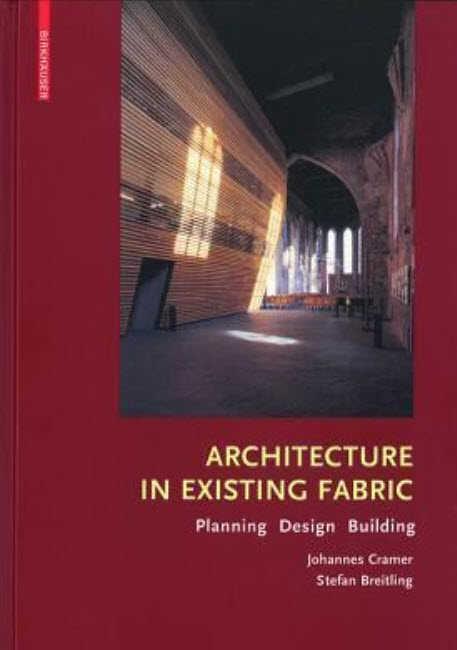Architecture in Existing Fabric, Planning, Design, Building By Johannes Cramer and Stefan Breitling

The shrinking of many European cities at the end of the second millennium
is a clear sign that the design and construction of new buildings is in
steady decline.
At the same time the alteration of existing built structures is becoming
increasingly important.
Society is growing more aware of ecological
issues and the thoughtless demolition of old buildings is now perceived
not only as an ecological waste but also as the eradication of local identity,
of cultural heritage and of socio-economic values. Various studies estimate
that between 50% and 70% of all construction work and about half of the
entire economic volume of construction now concerns work on existing
buildings. Yet, many architects are not adequately prepared for this shift in
the focus of architectural work.
18.2MB
Download
*

The shrinking of many European cities at the end of the second millennium
is a clear sign that the design and construction of new buildings is in
steady decline.
At the same time the alteration of existing built structures is becoming
increasingly important.
Society is growing more aware of ecological
issues and the thoughtless demolition of old buildings is now perceived
not only as an ecological waste but also as the eradication of local identity,
of cultural heritage and of socio-economic values. Various studies estimate
that between 50% and 70% of all construction work and about half of the
entire economic volume of construction now concerns work on existing
buildings. Yet, many architects are not adequately prepared for this shift in
the focus of architectural work.
18.2MB
Download
*